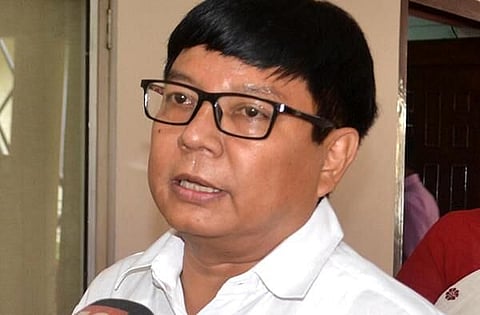
- Home
- Live Blog
- Breaking News
- Top Headlines
- Cities
- NE News
- Sentinel Media
- Sports
- Education
- Jobs

STAFF REPORTER
GUWAHATI: The Leader of Opposition, Assam Legislative Assembly, Debabrata Saikia, has sought the maintenance of secrecy of candidates appearing in the Assam Direct Recruitment Exam (ADRE). In the matter to the Governor Lakshman Prasad Acharya, Saikia requested him to intervene in the matter.
The letter said, “The Assam Government has conducted the Assam Direct Recruitment Exam (ADRE) for recruitment in Grade IV and III posts in various Departments of Assam, for which lakhs of candidates and aspirants have applied. The exam for the posts of Grade-III (HS level) was held on September 15, and for the posts of Grade-III (Degree Level) and Driver will be held on September 29 across the state.”
He further said, “In India, the identity of candidates appearing in written examinations is kept hidden through a process called anonymous marking or blind marking. Instead of using names, candidates are assigned unique roll numbers. These roll numbers are used on all exam papers and answer sheets. Knowing the identity of the candidate can introduce bias, whether conscious or unconscious, into the marking process. Examiners might be influenced by the candidate’s past performance, personal characteristics, or other factors unrelated to the quality of the answers.”
“Displaying personal information such as names and photos can violate the privacy of candidates. It can also lead to potential misuse of this information. The primary goal of anonymous marking is to ensure fairness and impartiality. Revealing the candidate’s identity undermines this objective, as it can lead to preferential or discriminatory treatment. To maintain the integrity and fairness of the examination process, it is crucial to keep the identity of candidates hidden from examiners. This is why measures like roll numbers, barcodes, and separate identification slips are used,” he added.
“In India, there are still some areas that are of concern to us all. That is the prevalence of caste and communal bias among many, even among the educated class. The examinations are supervised by invigilators who monitor the exam hall to prevent cheating and ensure that rules are followed. All examination centres are equipped with CCTV cameras to monitor activities and deter any malpractice. Question papers are sealed and only opened in the presence of invigilators just before the exam starts to prevent leaks. Candidates are also made to go through physical frisking and metal detectors to ensure that candidates do not bring any unauthorized electronic devices into the exam hall. Even normal internet service is also stopped during examination days,” he stated.
Also watch: